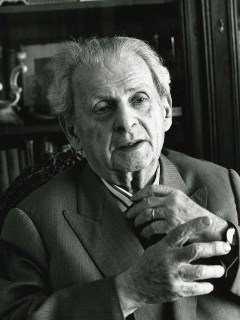
Publication details
Verlag: Springer
Ort: Berlin
Jahr: 1992
Pages: 189-200
Reihe: Phaenomenologica
ISBN (Hardback): 9789048141890
Volle Referenz:
, "Die Einheit der phänomenologischen Philosophie", in: Eros and Eris, Berlin, Springer, 1992


Die Einheit der phänomenologischen Philosophie
pp. 189-200
in: Paul Sars, Chris Bremmers, Koen Boey (eds), Eros and Eris, Berlin, Springer, 1992Abstrakt
Has phenomenological philosophy broken up into incompatible directions? When Husserl developed his transcendental and genetic phenomenology, he opposed the views of Scheler and Heidegger. Since 1929 Heidegger was led to Nietzsche and Hölderlin by Scheler's question concerning the position of man in the cosmos and a Welt des Ausgleichs. Instead of falling back on the original and the mythical, Levinas focused on an old phenomenological theme, intersubjectivity and its ethical dimension. Nevertheless, these various directions never lost sight of the matters and motives that, albeit concealed from view and with an often changing focus of attention, gave guidance from the beginning.
Cited authors
Publication details
Verlag: Springer
Ort: Berlin
Jahr: 1992
Pages: 189-200
Reihe: Phaenomenologica
ISBN (Hardback): 9789048141890
Volle Referenz:
, "Die Einheit der phänomenologischen Philosophie", in: Eros and Eris, Berlin, Springer, 1992



